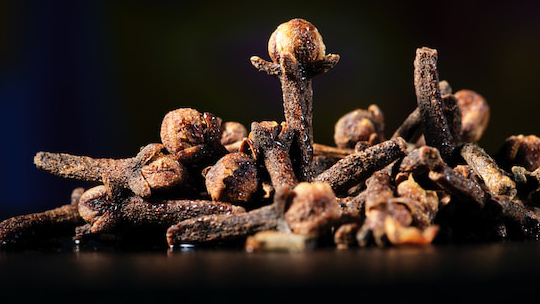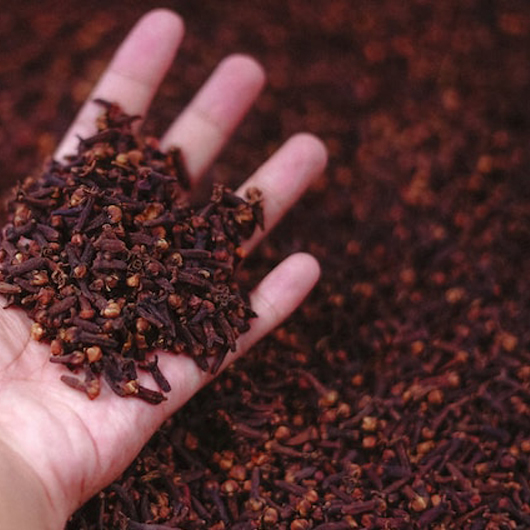


Clove is an unopened flower bud growing on a tree Syzgium aromaticum belonging to the family Myrtaceae. Cloves have a deep brown colour and a powerful fragrant odour that is warm, strongly sweet, pungent, and slightly astringent.
Cloves contain several nutrients that help prevent stomach ulcers. Clove oil has the ability to make gastric mucus thicker, protecting the stomach lining and preventing peptic ulcers. Cloves are also a source of fibre which helps with constipation and eases digestion.
Cloves have anti-inflammatory properties. Experts notably advise them for easing arthritis because research in the past has demonstrated that regularly consuming cloves could have significant positive effects. Clove tea or clove oil applied topically can both help reduce inflammation.
Eugenol in cloves is known to relieve dental discomfort. One might be able to manage the pain because the components are anaesthetic and antimicrobial.
In aromatherapy, clove oil is frequently used to relieve headaches. This might be linked to clove’s analgesic component, eugenol.

Cloves have antibacterial, antioxidant, and gastroprotective effects. The immune system may benefit from this.
The simple addition of cloves to meals is a fantastic way to maintain healthy blood sugar levels. Cloves provide manganese, a mineral that can help manage blood sugar levels.
The ability of cloves to prevent the stomach from growling in between meals makes them magical. For a spice, cloves include a remarkable quantity of fibre—a nutrient that can help balance appetite levels. Cloves alone have nearly a gramme of fibre per teaspoon.
Cloves are rich in antioxidants, which help the body ward off ageing symptoms. Adding cloves to smoothies, rice dishes, or sweets is a simple method to increase the consumption of antioxidants.